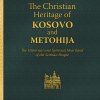New Yorker Milica Paranosic, originally from Belgrade, Serbia, is one of the most hardworking and appreciated composers in America. She graduated at the Music Academy in Belgrade as a composer, and after that she got her master’s degree at the prestigious Juilliard School in New York, where she now teaches the technology of music. Devoted to art, music and composing, Paranosic had a very successful concert at Carnegie Hall, the most prestigious concert stage in the United States, a few years ago. She is the founder of many art projects. One of them is a festival dedicated to the electronic music called “Beyond the Machine” at Juilliard. Also, a few years ago she started an even greater multimedia project — a musical center in Harlem called Paracademia in Harlem.
“The idea of this project wasn’t made in an instant, it came slowly and organically throughout the years,” Paranosic said. “I moved to Harlem 10 years ago, but a lot of time had to pass before that idea came fully to fruition and that Harlem become not only a place where I live, sleep, eat, compose music, but a place where I truly live. Plays, museums, performances, concerts, presentations, parties, restaurants, bars, clubs, yoga studios — I have all of that ‘around the corner’ in Harlem, and I finally started to feel that neighbor vibe like in Belgrade many years ago. Also, during many years I’ve been active on many fronts, and I finally realized that it’s time to bring all those activities ‘home’ and start making my music workshop.”
And that’s Paracademia: a music and multimedia organization for production, education and collaboration, open for everyone who is interested.
Since the year 2015, Paracademia started organizing the annual festival “Make Music Harlem” — a big community fair that gathers musicians and artists. The 2016 festival, part of Make Music New York, was a huge success. It was made in the form of a block party with a four-hour music marathon featuring La Banda Ramirez, ShoutHouse, Bonnie Bowers, Johari Mayfield, Jennifer Rae, and the first-ever Paracademia Junior Collective joined by The Dream Team Dance collective. Also, live painting was created by Daaz Daaz.
Talking about the third festival, which will take place this year, Paranosic said: “In 2017, we are producing it in the same format and location but with different musicians (and) artists, including Harlem Chamber Players, Max Pollak, and Macedonian Jazz/World group ‘Leteci Pekinezeri’, which makes this festival an international one for the first time this year.”
Beside founding and organizing an annual festival, Paranosic and her friends Lynn Bechtold and Keve Wilson founded a new project, “Ladies First,” within production of “Paracademia.” This is a new concept for a concert series, a collective highlighting female artists in multiple genres. With the intention of women empowering other women through art, “Ladies First” is a celebration of local and global accomplishments. Recently they organized the project “We’re All Immigrants.”
Urban Culture Tribe: Why did you call the project “We’re all immigrants,” and why is important for you to talk about immigrants?
Milica Paranosic: The irony of it is that being an immigrant in the states never meant a thing to me. I was always very comfortable in the mixed, diverse scenes and setting. New York is full of immigrants, it’s a big part of its charms and identity. In my 20-something years here, I was always surrounded by immigrants and Americans, and it never made any difference whatsoever how I would perceive the people, how I would value their friendships or their art.
Today, the immigration here is a hot issue, and you start to notice it more, and all of a sudden being an immigrant becomes more important to you, it becomes a part of your identity, it starts to define your expression, your socio-political and cultural decisions. Similar thing happened in Yugoslavia before I moved here: Until it became important on the political scene if one is a Serb or Croat, I never even new or paid attention to it. I never wanted to, and to this day it sounds unnatural to me to say I am from Serbia, or worse, I am from Former Yugoslavia. There’s nothing former about the country I grew up in, in my heart. By saying “We’re All Immigrants,” I am saying we’re all people. I feel that national(istic) divisions are (or should be) a thing of the past.
Urban Culture Tribe: It seems that you are always surrounded with many people. What do you find to be the most interesting thing in collaborating and working with them?
Milica Paranosic: I’m born with a blessing and a curse that I simply CANNOT be bored. If I am not stimulated, surprised, challenged, I will lose interest and walk away in the middle of the project, situation, relationship. When you’re collaborating with others, they will constantly surprise you, compare their point of view with yours, interlace their arts’ languages and syntax with yours, and you are just always a bit on the edge, a bit in the ‘unknown’, a bit uncomfortable, but always learning. I like that, in my art and in my life, and cannot function well without it.
Urban Culture Tribe: You graduated from Belgrade Music Academy and got a master’s degree at Juilliard School in NYC. Unlike many of your colleagues who can be pretty untouchable, you perform outside, in the neighborhood, and directly interact with your audience. What motivated you to go out, to be among your neighbors and perform music for them?
Milica Paranosic: I wish I can answer that. Nothing motivated me. It’s my natural need, I was always like that. I am a mingler, a party person, a people person. I am a monkey and a performer and often an entertainer, and I like close interaction with people. I don’t believe in art that is not meant to be shared. In my opinion, if it’s not shared, it doesn’t exist.
Urban Culture Tribe: What is the future of your Paracedemia?
Milica Paranosic: This spring, we are starting a new series, “The Other Graduation.” It is designed for young musicians and artist in order to encourage them to keep an open mind about the ways they can fulfill their careers and their dreams. Too often, the rigid academic education offers a limited, restricted view into the career options for artists. I see too many students whose dreams are shattered by a fact that they didn’t get an audition, or a job or a performance opportunity their teacher or their mom thought was the “right” one for them. Or worse, “the only” one. In “The Other Graduation” series, I will introduce those young artists to the ones that were curious and courageous to think differently and became big names because of it. After that, we have our “Make Music Harlem 2017” in June, then “Ladies First — Sisters and Wives” in September 2017, while working with children and adults in our education programs year-round.
Milica is also jewelry designer, and you can see her art work here http://www.milicaparanosic.com/design.
Source: Urban Culture Tribe





